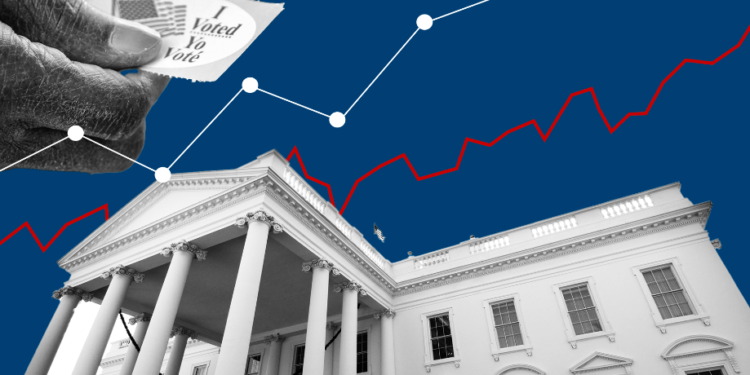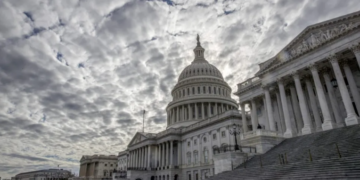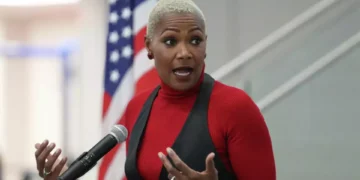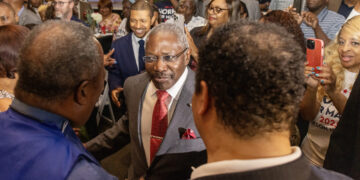Nov 1, 2024 Story by: Editor
The 2020 presidential election brought attention to a gender gap in voting preferences among Black Americans, particularly regarding the impact of hypermasculine and anti-establishment rhetoric on Black male voters. Discussions on Black men’s voting behavior often overlook the group’s diversity, treating them as a uniform bloc. However, with the number of Black immigrants tripling since 1980, there is a broader spectrum of political perspectives within the community.
Despite making up 11% of the immigrant electorate in 2018, Black immigrants are often underrepresented in analyses of Black political behavior, signaling the need for a more inclusive approach to voter dynamics.
According to my analysis, foreign-born Black men displayed the highest support for Donald Trump in 2020, with 30% backing him, compared to 11% of U.S.-born and 10% of second-generation Black men. These figures challenge the notion of a uniform Black voting bloc.
Former President Barack Obama’s recent statements about Black men have spurred debates on a possible shift from Democrat to Republican among Black Americans. Although most Black men still lean toward Vice President Kamala Harris, a growing number favor former President Donald Trump.
Discussions around Black men’s voting choices frequently emphasize economic frustrations with the Democratic Party, yet they often neglect how immigration status shapes preferences among Black men and Black Americans at large. Currently, 12% of Black adults are foreign-born, while an additional 9% are second-generation Americans. By 2060, Black immigrants are projected to account for a third of Black population growth. Still, many discussions fail to acknowledge this diversity, missing crucial insights into Black political behavior. In 2018, Black adult naturalized citizens made up 11% of the immigrant electorate, highlighting a significant but overlooked aspect of Black politics.
Reports suggest that Black men leaned more towards Donald Trump in 2020 than in previous elections. Data from Meredith Conroy and Perry Bacon Jr., analyzing the Democracy Fund UCLA Nationscape polling initiative, showed a gender gap: 76% of Black men supported Joe Biden compared to 87% of Black women. Conroy and Bacon argue that this reflects a trend of Black men increasingly supporting Republican candidates. Political historian Leah Wright Rigueur added that the GOP saw its lowest support among Black men during the 2008 and 2012 elections. Yet, as the Obama-era enthusiasm faded, some Black men found appeal in Trump’s “hypermasculine, anti-establishment, pro-capitalist rhetoric.”
Unfortunately, discussions about Black male voters often rely on racial stereotypes, portraying this diverse group as a monolith. This approach overlooks the significant demographic shifts within the Black community. For example, the Pew Research Center’s Census data analysis showed the Black immigrant population in the U.S. grew from 800,000 in 1980 to 4.6 million in 2019, accounting for 19% of the overall Black population growth during that period.
To explore this further, I used data from the American Trends Panel (ATP), a probability-based, nationally representative monthly survey of about 10,000 U.S. participants aged 18 and older. Respondents in Wave 60 provided demographic details, and in Wave 78, they matched their voter choice to official state voter files, enhancing the data’s accuracy. This methodology enabled me to analyze the voting choices of U.S.-born, foreign-born, and second-generation Black men who voted for either Trump or Biden (N=250).
The ATP data showed that 79.61% of Black male voters were U.S.-born, while 11.83% were foreign-born, and 8.56% were second-generation Black Americans. Among them, foreign-born Black men were most supportive of Trump, with 30% voting for him—significantly more than the 11% of U.S.-born Black men and 10% of second-generation Black men. These patterns underscore how immigration status can influence political preferences, with foreign-born Black men perhaps finding Trump’s rhetoric resonant due to cultural or socioeconomic factors shaped by immigrant experiences. Meanwhile, U.S.-born and second-generation Black men showed more alignment in their voting patterns, with both groups displaying less support for Trump than foreign-born Black men.
Interestingly, these findings suggest that political preferences among Black men are not fixed and can change over generations. This pattern is especially clear when comparing the voting tendencies of second-generation Black men with those of foreign-born voters, indicating that acculturation plays a role in political orientation. These findings call for broader studies to understand how Black political dynamics evolve within this diverse community, factoring in aspects like immigration status and gender.
The future of Black men’s political behavior is likely to grow more complex, reflecting the increasing diversity of this voter group. Current political discourse often simplifies these dynamics, focusing primarily on gender. A more nuanced analysis would account for variables like immigration status, particularly since two of the Democratic Party’s last three presidential nominees—Barack Obama and Kamala Harris—are second-generation Black Americans. Notably, foreign-born Black men showed the strongest support for Trump, signaling that their voting preferences may be influenced by factors distinct from those affecting U.S.-born Black Americans. Source: Brookings

















